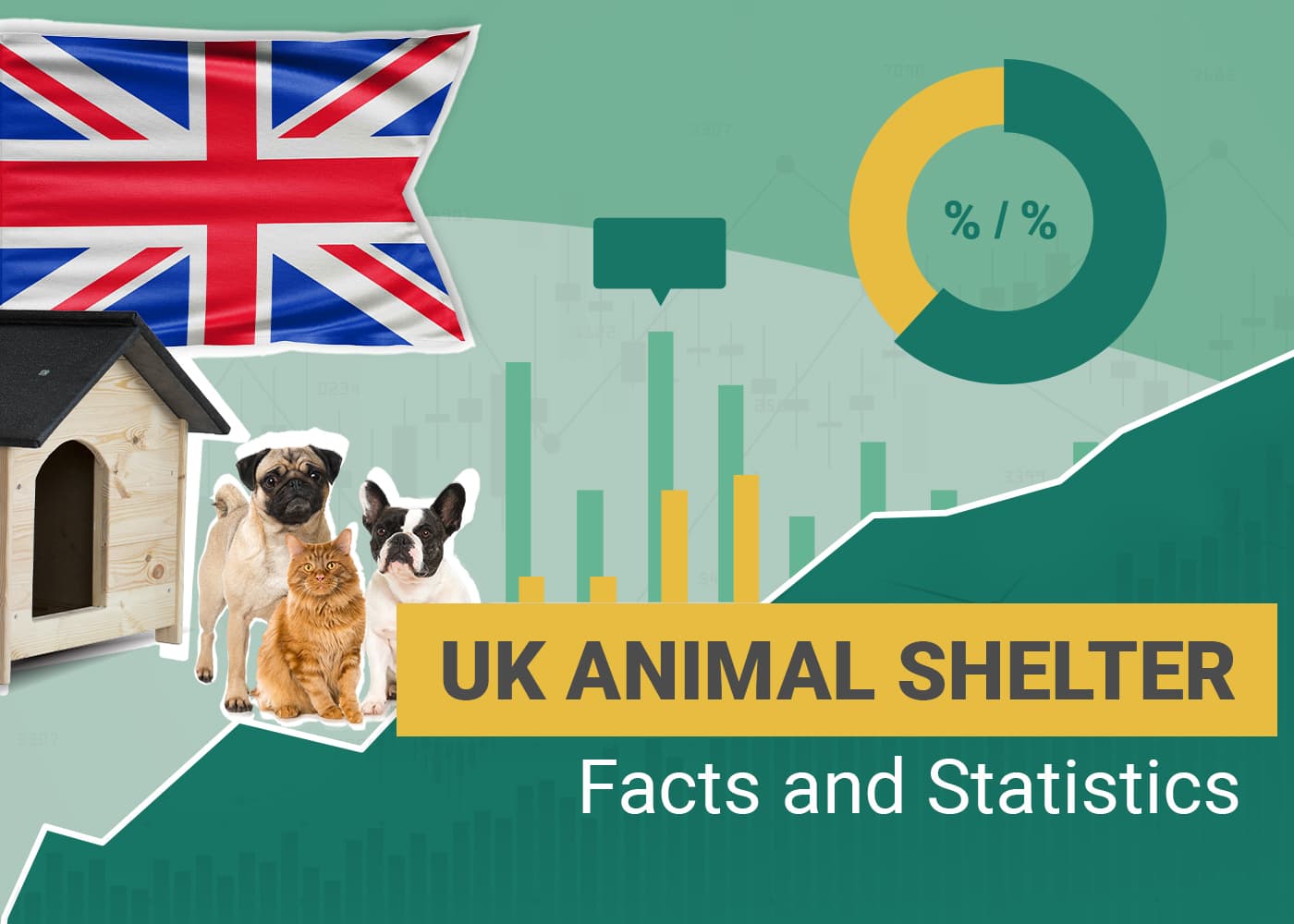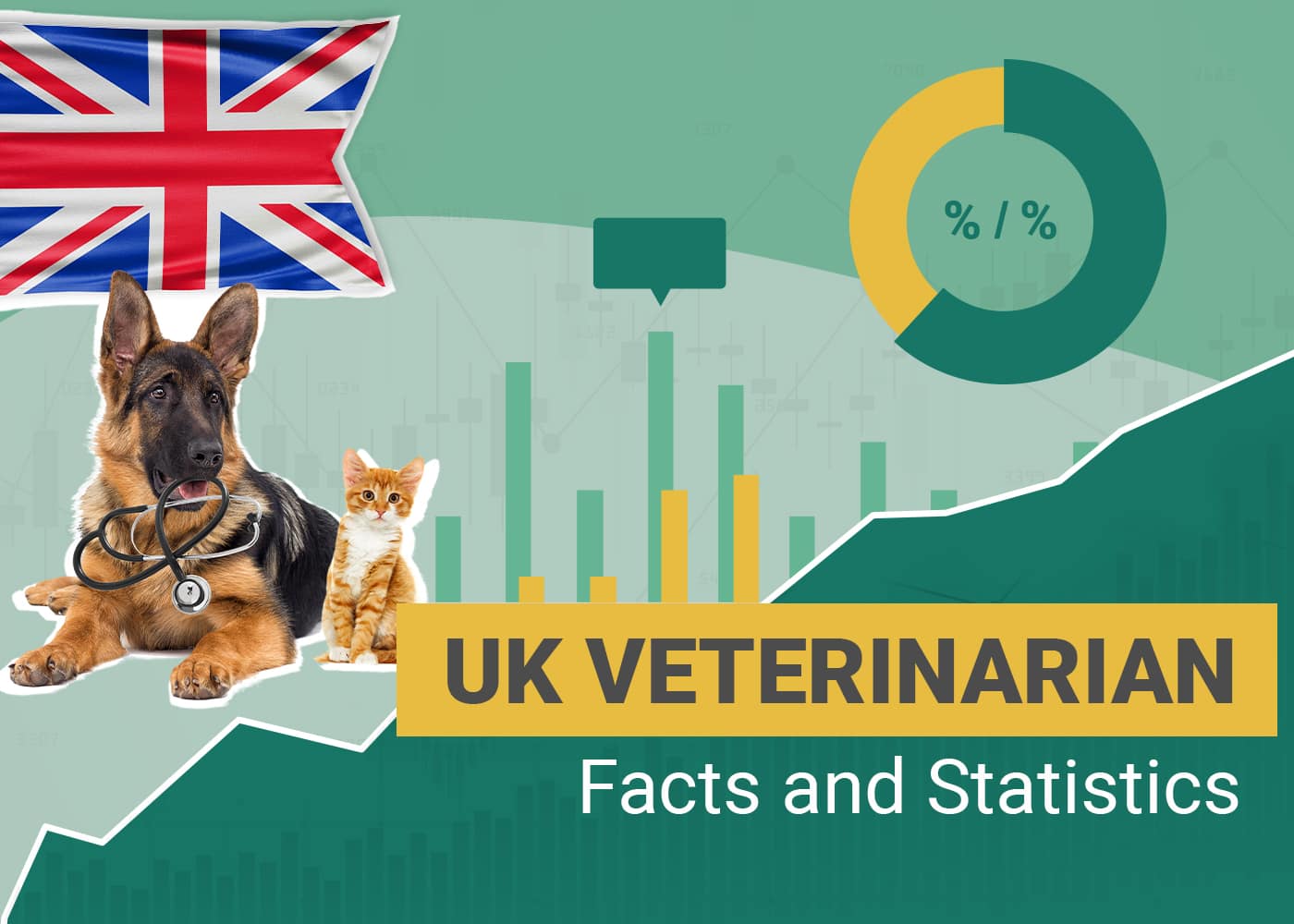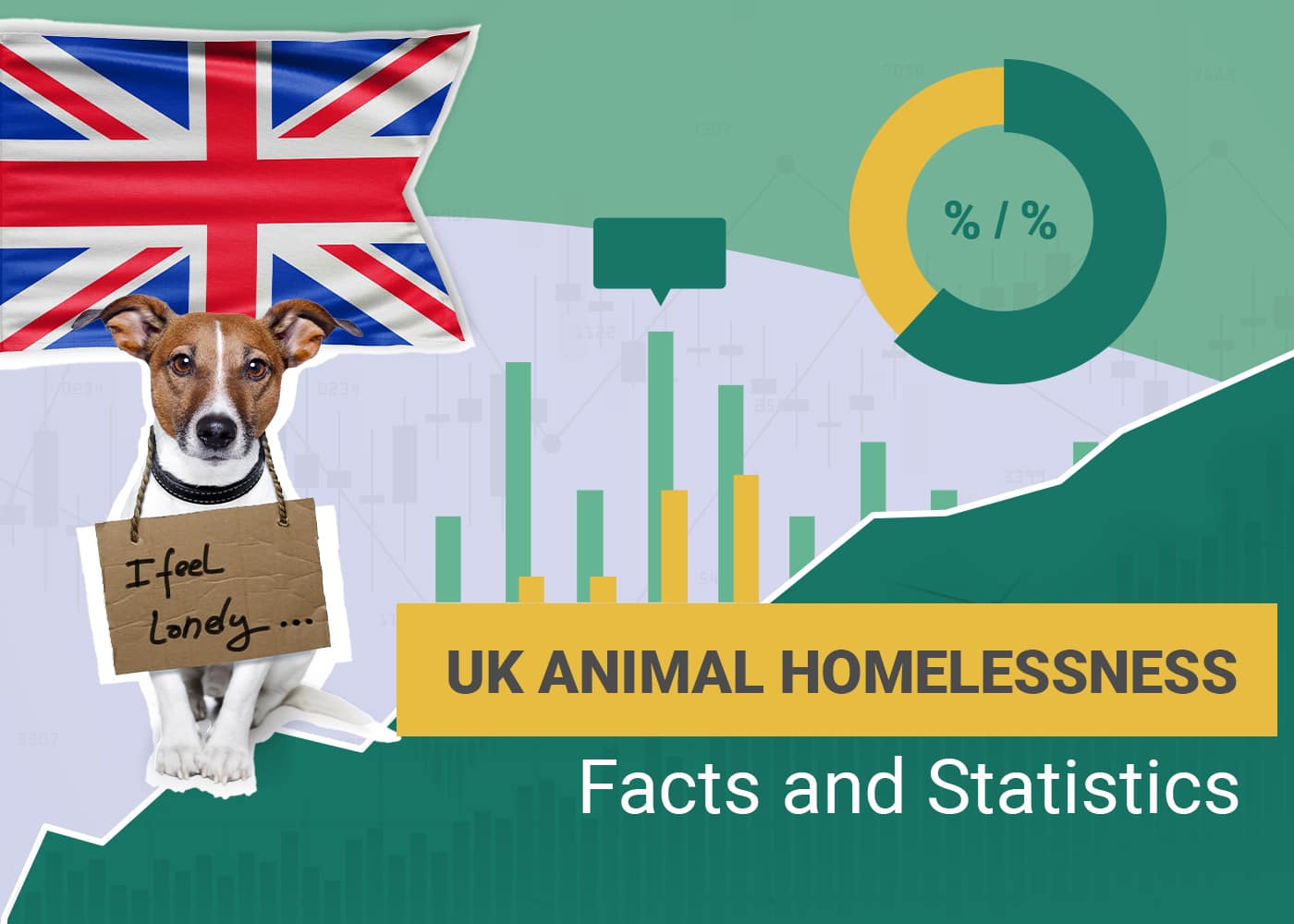Click to Skip Ahead
Note: This article’s statistics come from third-party sources and do not represent the opinions of this website.
Animal shelters provide an invaluable service, taking in pets relinquished by their owners or that are roaming the streets as strays. They also rehome the animals, helping find them their next loving homes.
However, following the pet acquisition boom of 2021, and the subsequent return to work and financial crisis in the UK, many rescues are struggling to cope. More animals are being handed over while fewer people are in a position to be able to take any more pets. The most common reasons for relinquishing pets include changes in personal circumstances, struggling with the costs of keeping the pet, and behavioural issues with the pet.
The Dogs Trust, RSPCA, and Cats Protection are the largest networks of shelters and animal charities in the UK, but there are hundreds of independent rescues and smaller organisations that perform similar roles.
There is no register of homeless pets or even a strict list of shelters and rescues in the UK, which makes gathering statistics a little tricky, but, below, we have included 14 animal shelter statistics related to the UK pet population.

The 14 Animal Shelter Statistics in the UK
- Dogs and cats make up the vast majority of the UK’s 30 million pets.
- A third of dog owners got their pups from breeders, with a quarter adopting from shelters.
- There are approximately 100,000 dogs without homes.
- There are a quarter of a million homeless cats in the UK.
- Globally, 15% of pet owners are considering giving up their pets.
- 20% of UK owners relinquished a dog in 2023.
- 25% of owners said they relinquished their dog because of costs.
- Appearance is the most important consideration when people choose a dog to adopt.
- Cat adopters consider behaviour with people the most important factor.
- 72% of people said they have no plans to get any new pets.
- Cats Protection rehomes more than 30,000 cats a year.
- The RSPCA has rehomed nearly half a million pets in 10 years.
- There are approximately 1,000 animal shelters and rescues in England alone.
- 21 otherwise healthy dogs are euthanized in UK shelters every day.
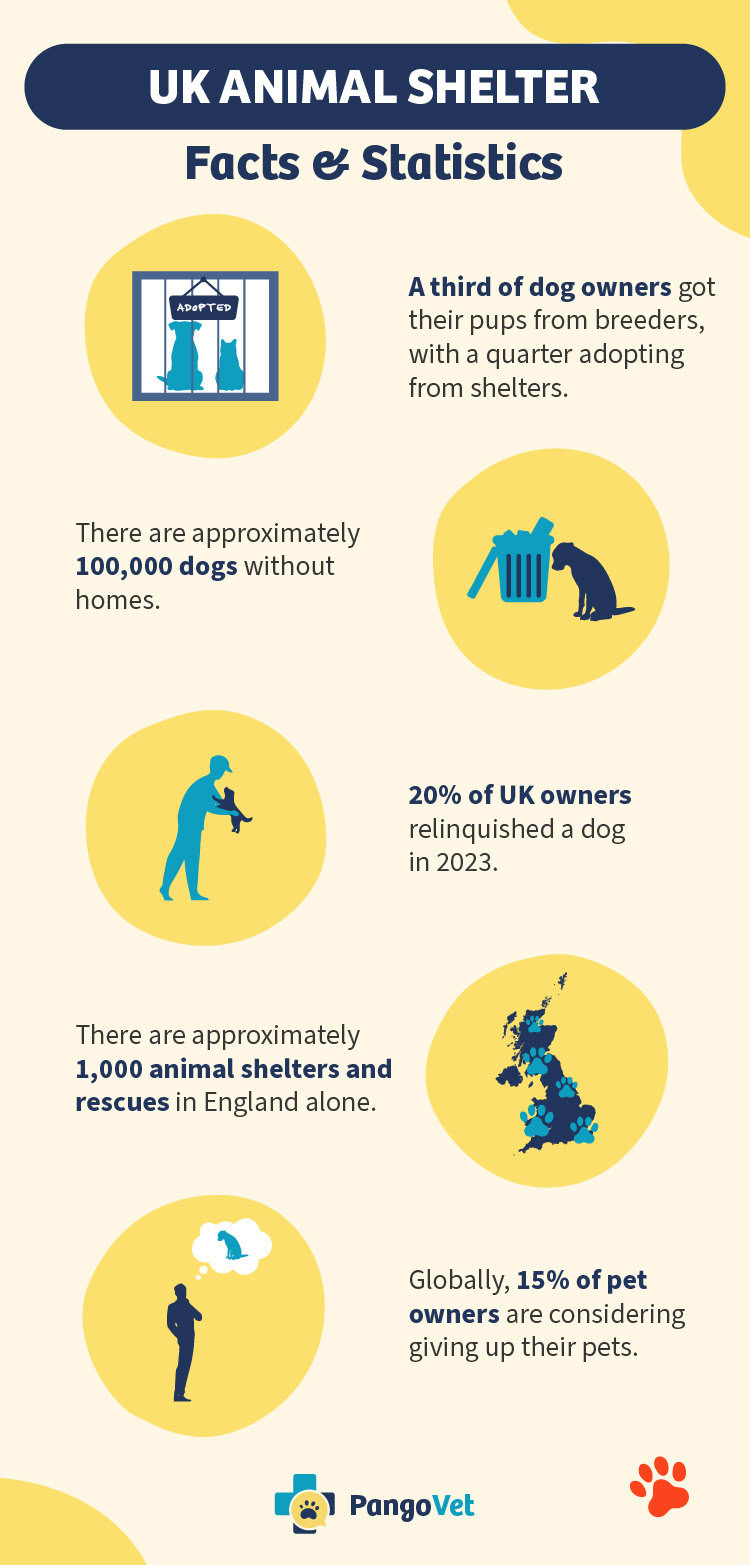
Pets and Homeless Animals
1. Dogs and cats make up the vast majority of the UK’s 30 million pets.
(UK Pet Food)
A recent surge in pet ownership, over the past few years, has seen the number of pets in the UK rise dramatically. Of the more than 30 million pets that are kept, the vast majority are dogs and cats with 13.5 million pet dogs and 12.5 million pet cats.
36% of households have at least one dog, while 29% have at least one cat. There are also 1.5 million indoor birds, 1.3 million domestic fowl, and 1 million rabbits.

2. A third of dog owners got their pups from breeders, with a quarter adopting from shelters.
(Statista)
Buying a dog from a breeder enables the owner to choose the breed of dog they get, as well as the age and gender of the dog. But it can be expensive, and even careful buyers still run the risk of handing their money over to puppy mill owners and unscrupulous breeders. Adopting saves the life of the dog the adopter takes on, and it also frees up space for another relinquished or abandoned dog.
Approximately 33% of owners got their dogs from breeders while a quarter adopted their dogs from rescues or shelters. Other possible sources include private sales, such as those seen online and in classified ads, and directly from friends and family.
3. There are approximately 100,000 dogs without homes.
(PETA)
Although it is rare to see stray dogs on most streets, the UK does have a population of around 100,000 dogs without homes. Many of these are found in shelters and rescues, although some cities do have strays. The figure could be much higher as there is no register of dogs in rescues, and the number likely fluctuates throughout the year.
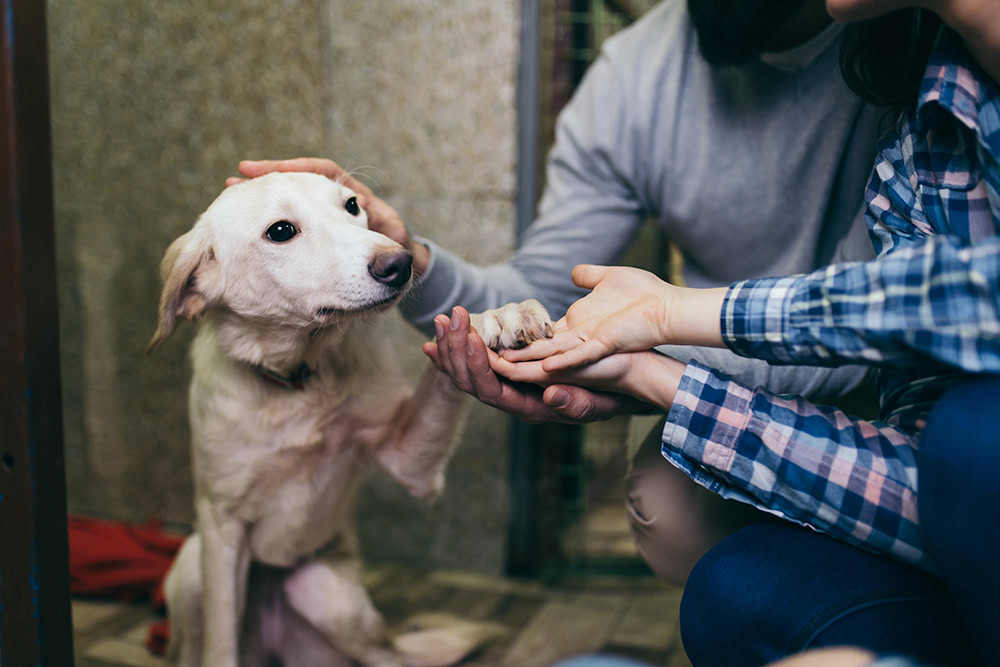
4. There are a quarter of a million homeless cats in the UK.
(NCBI)
Homeless cats are an even bigger problem in population terms. There are believed to be 250,000 homeless cats living on the streets of towns and cities, as well as a further 150,000 entering shelters every year.
300,000 cats live on farms and are not considered pets but are not necessarily homeless. Although no number has been given, there are also homeless cats that live in rural areas, outside towns and cities but are not considered farm cats.
Adoptions And Adopters
5. Globally, 15% of pet owners are considering giving up their pets.
(Mars)
The cost-of-living crisis has hit people all around the world and, partially as a result of this, and also because of the large number of pets that people bought or adopted during Covid, there has been an increase in the number of owners looking to relinquish or give up their pets.
According to one study, 15% of global pet owners are considering giving up their pets because of financial constraints or a change in personal circumstances.
6. 20% of UK owners relinquished a dog in 2023.
(Novuna)
2023 saw one in five UK owners give up their dogs for adoption. 22% of those who did give up their dogs said they did so because they no longer had the same opportunities to work from home.
Approximately 17% of workplaces do allow dogs in the office, but this still leaves a lot of businesses that don’t allow it, and some dogs may not be suitable to take to work for the day.
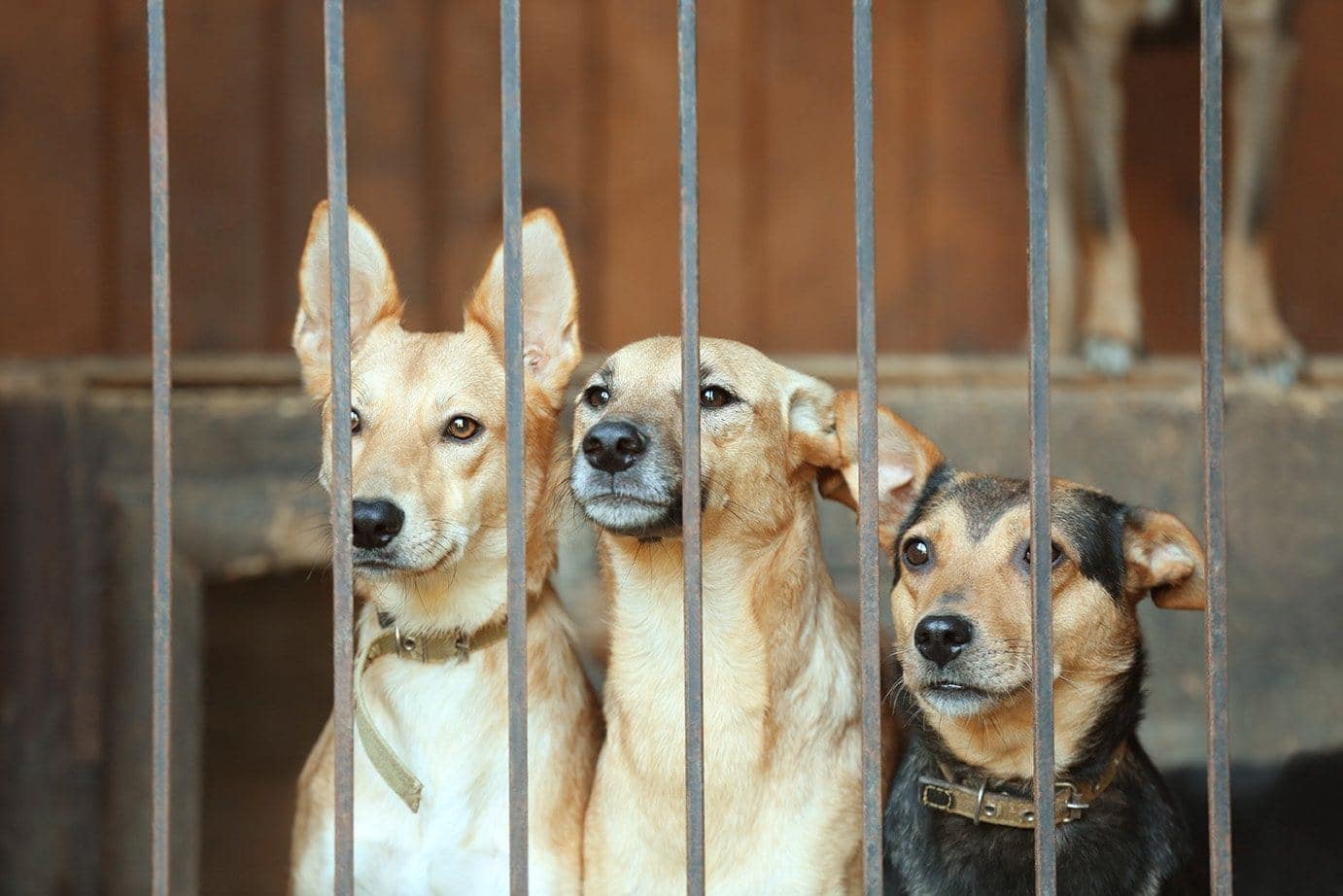
7. 25% of owners said they relinquished their dog because of costs.
(Novuna)
While a change in working conditions is a common cause for dogs to be relinquished, the single most common reason is cost. As people have returned to the office or gone back to work following years of working from home, they have had to find alternative care opportunities for their dogs.
Dog daycare costs are around £1,500 a year, which is a cost that most new owners wouldn’t have allowed for when budgeting for their new pet.
8. Appearance is the most important consideration when people choose a dog to adopt.
(Researchgate)
Choosing the right dog is important. Buyers consider breed, likely behaviours, and size. But, when it comes to deciding which dog to adopt, the single most important factor to adopters is how the dog looks. 27% of adopters go by appearance, first, followed by general temperament (16%) and behaviour with people (11.4%).
9. Cat adopters consider behaviour with people the most important factor.
(Researchgate)
For cat adopters, the most important consideration is how the cat is likely to act and react around people. 26.9% of adopters said this was the most important element when choosing a cat, compared to 13.9% and 12.2% that consider looks and general temperament.

10. 72% of people said they have no plans to get any new pets.
(RSPCA)
An increase in the number of animals being relinquished is further exacerbated by the fact that potential owners are becoming less likely to acquire any new pets. According to one study, 72% of people said they had no plans to get any new pets.
As a result, shelters will get fuller while fewer of the shelter animals will find loving homes.
Animal Shelters
11. Cats Protection rehomes more than 30,000 cats a year.
(Cats Protection)
Cats Protection is one of the largest animal charities in the UK and rehomes more than 30,000 cats every year. Since their formation in 1927, they have rehomed more than 1.5 million cats and kittens to new homes.
The charity has 210 branches across the country, run by volunteers, as well as 34 centres.
12. The RSPCA has rehomed nearly half a million pets in 10 years
(Wakefield Express)
The Royal Society for the Prevention of Cruelty to Animals, or RSPCA, has 150 branches throughout the UK, where they house and rehome cats, dogs, and a variety of other animals. In 10 years, the charity has rehomed around half a million pets.

13. There are approximately 1,000 animal shelters and rescues in England alone.
(Hansard)
There is no register for shelters and rescues, and as well as large networks like Cats Protection, RSPCA, and Dog’s Trust, there are many smaller, independent shelters.
Although there is no exact figure, there are believed to be around 1,000 shelters and rescues in England alone, which means the number will be much higher when taking into account Scotland, Wales, and Northern Ireland. The figure could also be a lot higher than this.
14. 21 otherwise healthy dogs are euthanized in UK shelters every day.
(City Doggo)
Unfortunately, as rescues do become overwhelmed with the sheer number of animals in their care, some are left with no choice but to euthanise animals that cannot be rehomed. In some cases, this is done because the animals have behavioural problems that would make rehoming difficult. In other cases, it is simply because the animals have been with the shelter too long and they have not had any interest in being adopted.
It is estimated that 21 otherwise healthy dogs are put to sleep in UK shelters, every day. Adopting a dog helps prevent that dog from being put to sleep and eases the burden on the rescue itself.
Frequently Asked Questions (FAQ)
Is it better to adopt than buy?
There is an overpopulation problem with both cats and dogs. This means that more and more are being left in shelters and rescues, and with fewer people looking to take on new pets, the population problem is only getting worse.
Adopting means that you can help a dog or cat that is in need, rather than buying from a breeder and adding another pet to the increasingly large number. However, not everybody is in a position to be able to adopt an adult dog.
How much does it cost to adopt a dog or cat?
Adoption costs vary across the country and by shelter and animal type. Typically, cats cost less to adopt than dogs, with a cat adoption fee being around £100 to £150 compared to £250 to adopt a dog.
Shelters will ensure that the animal has been neutered or spayed, that it is microchipped, and that it has been vaccinated, which means that adopting not only saves on the cost of the acquisition itself but also saves on the initial costs associated with purchasing a pet.

Are there restrictions on who can adopt?
Many shelters and rescues do place restrictions on who can adopt. They do this to ensure that the pet has the best chance of a long and loving life with its new owners.
Some rescues won’t rehome to people in rented accommodation, for example, but it is worth checking with your local rescue to see whether they do have any restrictions on adopters.
How can you help animal shelters?
As well as adopting pets, there are other ways to help animal shelters and charities. Most are run by volunteers, so if you can spare some time to walk dogs or clean up after the cats and dogs, the help would be appreciated.
If they run shops or other money-raising ventures, these too need volunteers, and registered non-profit shelters accept donations to help pay for the care of the animals and the upkeep of the shelter.
Conclusion
Animal shelters and rescue centres can be found across the UK, with an estimated 1,000 or more in England alone. These help house and rehome the hundreds of thousands of homeless cats and dogs in the country, while some also lobby for the welfare of animal populations.
The population of homeless animals in the UK continues to grow, and surveys suggest that more owners are looking to get rid of their pets in the coming years, as a result of changes in working conditions and the cost-of-living crisis. Shelters need help from the public, not only through the adoption of their animals but from voluntary assistance and donations, too.
Featured Image Credit: Anton Gvozdikov, Shutterstock
